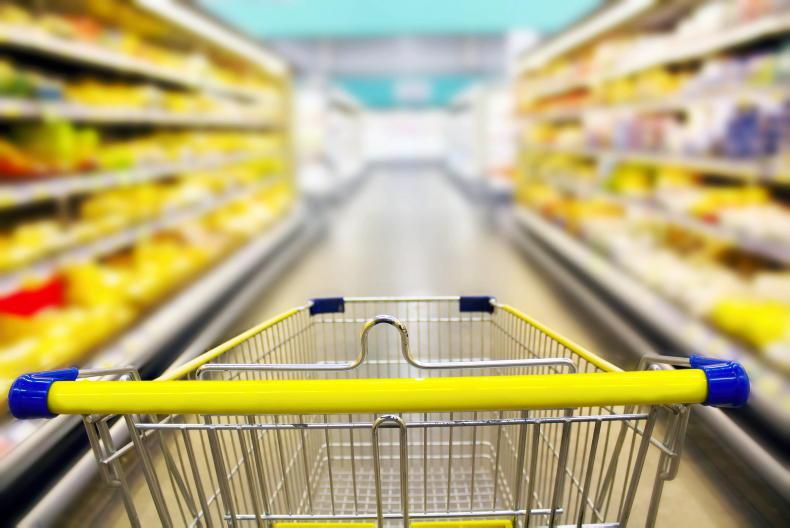The price of consumers’ weekly shopping rose at the slowest pace since September 2022 according to the latest Kantar report with inflation coming in at a still-elevated 11.5%.
This is a reduction of 1.3 percentage points from the previous reading. Kantar says their inflation reading is based on 30,000 identical products and “represents the most authoritative figure currently available”.
The inflation number does not take account of changing consumer behaviour in the face of significant cost increases, so individual shoppers may have much lower rates of price increases as they select cheaper or supermarket own-brand options to reduce costs. This is shown in the Kantar data which finds a 11.9% increase in own label products in the past 12 weeks, more than double the increase in branded items.
There is also a continued rise in people opting to buy their groceries online, with annual growth for that channel at a “significant” 18.5%.
Dunnes Stores remained the largest grocery retailer in the state with 23% of the market while Tesco were a close second at 22.6%. Lidl and Aldi held a combined 26.1% of the market.
The price of consumers’ weekly shopping rose at the slowest pace since September 2022 according to the latest Kantar report with inflation coming in at a still-elevated 11.5%.
This is a reduction of 1.3 percentage points from the previous reading. Kantar says their inflation reading is based on 30,000 identical products and “represents the most authoritative figure currently available”.
The inflation number does not take account of changing consumer behaviour in the face of significant cost increases, so individual shoppers may have much lower rates of price increases as they select cheaper or supermarket own-brand options to reduce costs. This is shown in the Kantar data which finds a 11.9% increase in own label products in the past 12 weeks, more than double the increase in branded items.
There is also a continued rise in people opting to buy their groceries online, with annual growth for that channel at a “significant” 18.5%.
Dunnes Stores remained the largest grocery retailer in the state with 23% of the market while Tesco were a close second at 22.6%. Lidl and Aldi held a combined 26.1% of the market.






 This is a subscriber-only article
This is a subscriber-only article










SHARING OPTIONS: